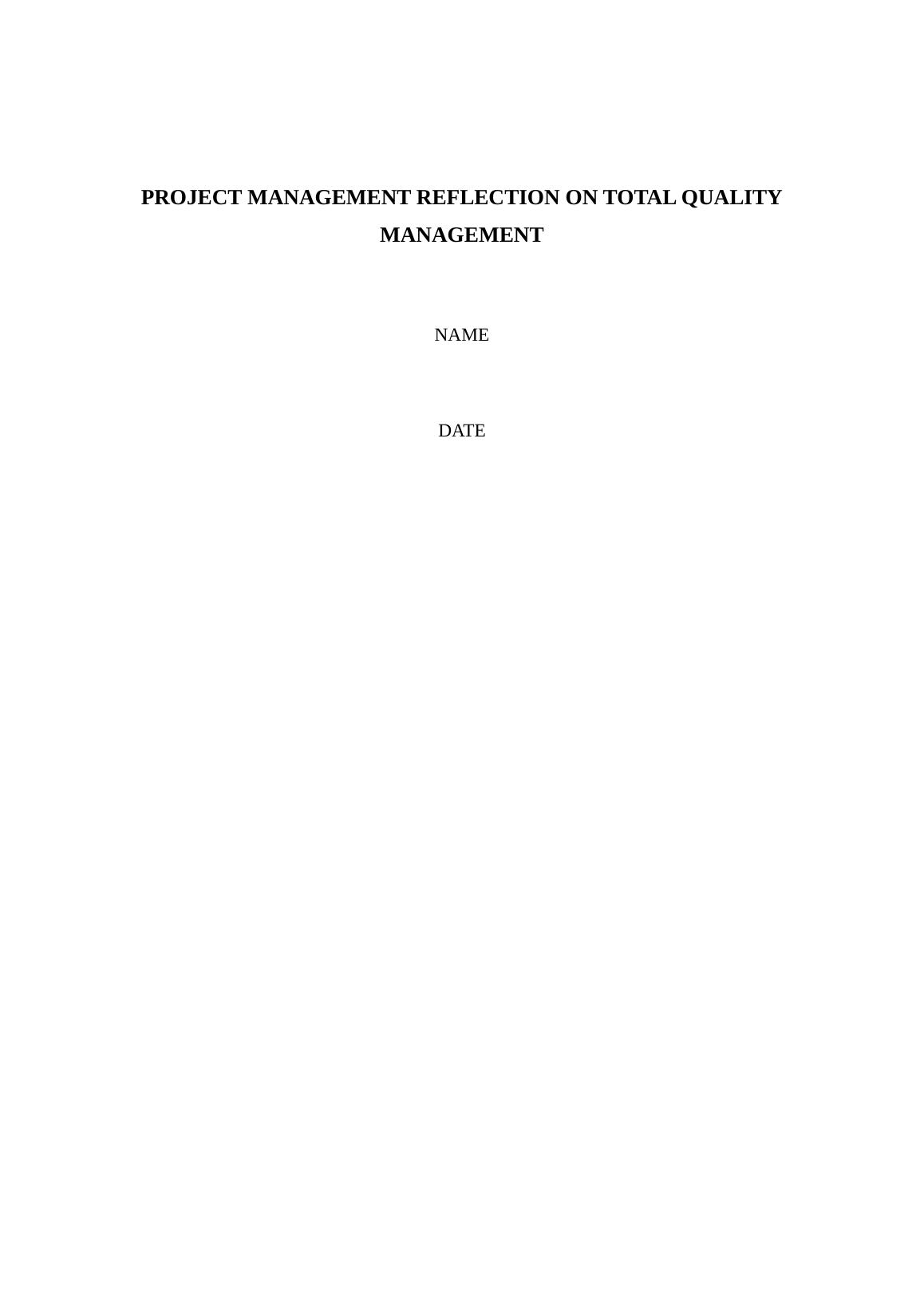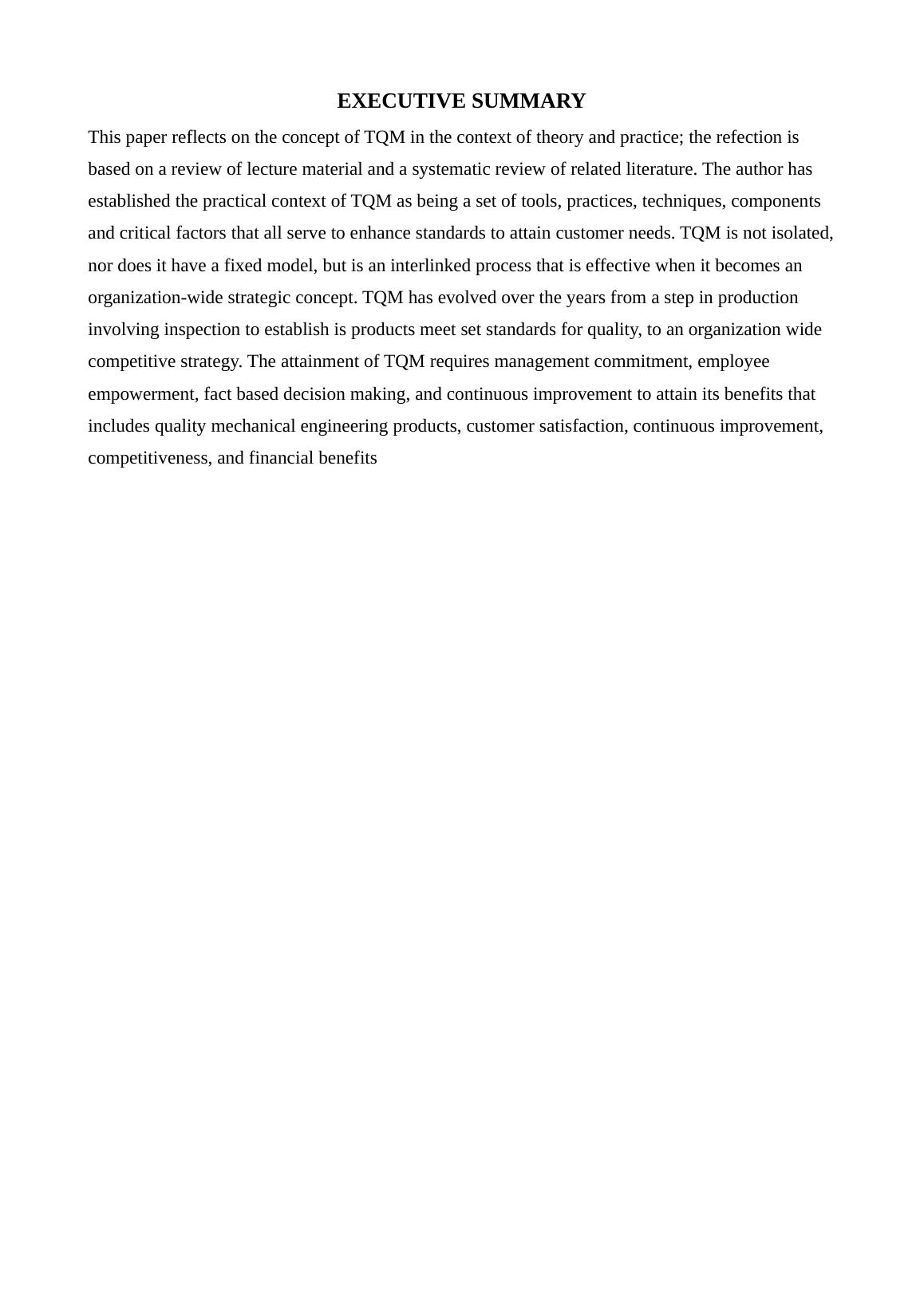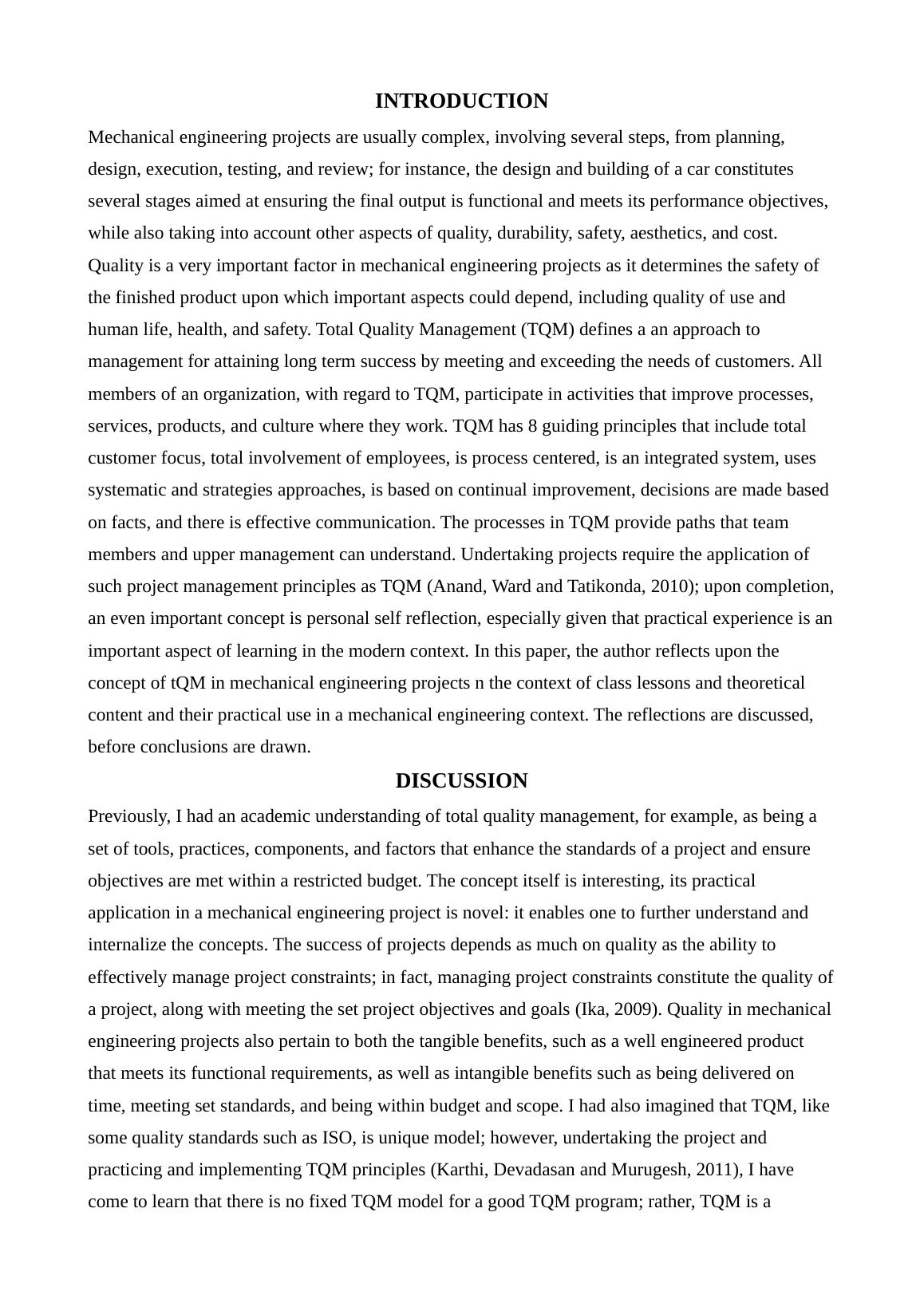Project Management & Total Quality Management
Added on 2021-06-17
9 Pages3015 Words42 Views
PROJECT MANAGEMENT REFLECTION ON TOTAL QUALITYMANAGEMENTNAMEDATE

EXECUTIVE SUMMARYThis paper reflects on the concept of TQM in the context of theory and practice; the refection is based on a review of lecture material and a systematic review of related literature. The author has established the practical context of TQM as being a set of tools, practices, techniques, components and critical factors that all serve to enhance standards to attain customer needs. TQM is not isolated,nor does it have a fixed model, but is an interlinked process that is effective when it becomes an organization-wide strategic concept. TQM has evolved over the years from a step in production involving inspection to establish is products meet set standards for quality, to an organization wide competitive strategy. The attainment of TQM requires management commitment, employee empowerment, fact based decision making, and continuous improvement to attain its benefits that includes quality mechanical engineering products, customer satisfaction, continuous improvement, competitiveness, and financial benefits

INTRODUCTIONMechanical engineering projects are usually complex, involving several steps, from planning, design, execution, testing, and review; for instance, the design and building of a car constitutes several stages aimed at ensuring the final output is functional and meets its performance objectives, while also taking into account other aspects of quality, durability, safety, aesthetics, and cost. Quality is a very important factor in mechanical engineering projects as it determines the safety of the finished product upon which important aspects could depend, including quality of use and human life, health, and safety. Total Quality Management (TQM) defines a an approach to management for attaining long term success by meeting and exceeding the needs of customers. All members of an organization, with regard to TQM, participate in activities that improve processes, services, products, and culture where they work. TQM has 8 guiding principles that include total customer focus, total involvement of employees, is process centered, is an integrated system, uses systematic and strategies approaches, is based on continual improvement, decisions are made based on facts, and there is effective communication. The processes in TQM provide paths that team members and upper management can understand. Undertaking projects require the application of such project management principles as TQM (Anand, Ward and Tatikonda, 2010); upon completion,an even important concept is personal self reflection, especially given that practical experience is animportant aspect of learning in the modern context. In this paper, the author reflects upon the concept of tQM in mechanical engineering projects n the context of class lessons and theoretical content and their practical use in a mechanical engineering context. The reflections are discussed, before conclusions are drawn. DISCUSSIONPreviously, I had an academic understanding of total quality management, for example, as being a set of tools, practices, components, and factors that enhance the standards of a project and ensure objectives are met within a restricted budget. The concept itself is interesting, its practical application in a mechanical engineering project is novel: it enables one to further understand and internalize the concepts. The success of projects depends as much on quality as the ability to effectively manage project constraints; in fact, managing project constraints constitute the quality ofa project, along with meeting the set project objectives and goals (Ika, 2009). Quality in mechanicalengineering projects also pertain to both the tangible benefits, such as a well engineered product that meets its functional requirements, as well as intangible benefits such as being delivered on time, meeting set standards, and being within budget and scope. I had also imagined that TQM, like some quality standards such as ISO, is unique model; however, undertaking the project and practicing and implementing TQM principles (Karthi, Devadasan and Murugesh, 2011), I have come to learn that there is no fixed TQM model for a good TQM program; rather, TQM is a

End of preview
Want to access all the pages? Upload your documents or become a member.
Related Documents
The Concept of Total Quality Managementlg...
|14
|3751
|60
Managing Project Quality PDFlg...
|11
|3168
|249
Total Quality Management Approach : Reportlg...
|11
|3415
|181
Impact of Total Quality Management on Customer Satisfactionlg...
|9
|2420
|70
Total Quality Managementlg...
|13
|3794
|318
Author's Note: Total Quality Management Name of the University Author's Notelg...
|18
|4764
|474
